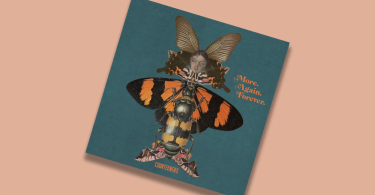Ah, Eurovision. An event so massive, so staggeringly important that they moved Spanish football’s Copa Del Rey (no relation to Lana, I assure you) to accommodate its magnificence.
Ah, Eurovision. An event so massive, so staggeringly important that they moved Spanish football’s Copa Del Rey (no relation to Lana, I assure you) to accommodate its magnificence. A competition that purports to show the best of each country’s musical talent coalescing into one glorious celebration of European cooperation—purports to.
Of course, the road to hell is paved with such ostensibly good intentions. Over the last two decades the competition has come in for criticism, especially from the United Kingdom, over the fact that particular blocs ensure a level of predictability in voting not seen outside puppet democracies. “How dare the Eastern Bloc countries vote for each other’s songs,” Britain screams. “Don’t they know that Bonnie Tyler has over TWO recognisable songs?! Who do these foreigners think they are?! Etcetera?!”
Well, allow me to reject such parochialism. Eurovision has been getting better and better every year, as entries continue to walk that thin tightrope between the sublime and the ridiculous.
Britain is merely angry because it hasn’t produced any decent songs for Eurovision for about fifteen years, and seems to have stopped trying. Its reliance in the last three years of competition of former stars looking for one last shot at the limelight (Blue, Engelbert and Bonnie, hang your heads in shame) is proof that they’re willing to put out any old rubbish, because what’s the point in trying? This policy fails to take into account of course that by not putting in effort, they will not change European opinion of them.
To their credit, they have a point—British entries have been so staggeringly awful that most of the country, myself included, don’t watch it for whatever zombie they’ve dredged up to do their bidding for the competition. No, we watch it for that aforementioned curious mix of the sublime and the ridiculous that only Eurovision provides.
For the sublime, we need look no further than this year’s winner, Emmelie de Forest, doing her best impression of a Scandinavian Shakira with drum-heavy “Only Teardrops” was obviously going to win. It was and remains catchy as hell, with a chorus that bores its way into your head with the insistence and power of an industrial drill. The penny whistle’s melody is simple yet so effective at carrying the song—it’s just an excellent pop song and a worthy winner.
There were other great pop songs on show this year that transcended Eurovision’s usual default setting of ironic retro camp. Malta’s entry, a rather lovely little ditty by Gianluca Bezzina called “Tomorrow,” is so saccharine that listening to it actually increases your chance of diabetes, yet that’s undercut by the fact that he is clearly having the best time singing it. The fact he’s a doctor may have something to do with that—the sappy optimism of Eurovision must contrast something awful with dealing with broken arms on a daily basis. Yet, it’s so relentlessly optimistic that you can’t help but enjoy it.
As for the ridiculous? Oh Romania, you never let us down. Their entry this year was a curious mix of Nosferatu and a 15th Century castrati howling like a wounded dog to Eurotrance-cum-dubstep while gold-painted dancers gyrated with a sheet to simulate either lava or bed-making. I’m unsure which, because the combination of these factors caused my brain to hand in its resignation and leave for pastures new. The song is called “It’s My Life,” and it’s so brilliantly insane that, in a fair and just world, it would have won not just Eurovision, eighteen Grammys and a Nobel Prize.
Greece also deserve a mention here, their folk-ska song “Alcohol Is Free” which starts as any folk-ditty would before transmogrifying into a terrifyingly catchy ska number featuring a repeated refrain of, you guessed it, “Alcohol is free.” The rumour goes that Greece entered this to try and ensure they wouldn’t win and be forced to host next year’s one, which would have been unaffordable in their current economic climate of less than zero. They succeeded, but if they wanted to make sure, they shouldn’t have used such a fine, if completely bizarre song.
The other songs tended towards the fine Eurovision stereotypes. There were the typical “power-ballads” without any power to them (Estonia, I’m looking at you). There were the typical ironic camp songs—Finland in particular had a great example of this, a song called Marry Me that set back feminism about fifty years with lyrics such as “Baby, I feel like a sinner / skipping dinner to get thinner,” as well as indulging in a spot of lipstick lesbianism.
Yet despite that melodic kick in the teeth to Germaine Greer and her academic ilk, the point remains that it was fun. And that’s what Eurovision is when we boil it down to the mere essentials. It isn’t highbrow, it isn’t serious, it’s simply fun. The British public understand this. It’s a shame that the British producers who pick the singers don’t. British entries have tended towards the alarmingly po-faced in recent years, which as we saw from this year’s entries defies the entire spirit of the competition.
So next year, get your friends together. Get some drinks in. Have a laugh at the sillier stuff. Laugh at how Britain is terrible again. Show off your powers of precognition by predicting the obvious voting patterns. Then laugh at them. Take it in its stride, for the pantomime of music and dance that it so obviously is, and enjoy it. You won’t be disappointed.
What did you think of this year’s Eurovision contest? Have your say in the comments section below, on Facebook or on Twitter.








